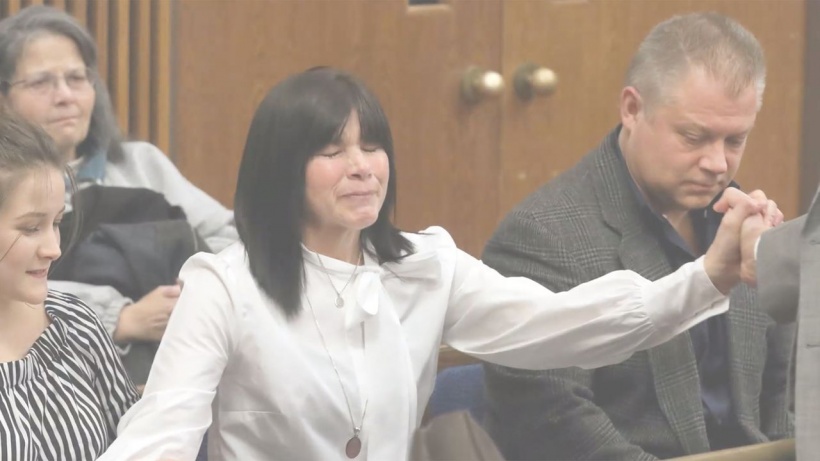Journalist, Survivor and Clinician: A Case Study in Collaboration
A panel discussion at International Society for Traumatic Stress Studies’ annual meeting offered an innovative model for interviewing survivors of sexual assault: keep a therapist in the room.

In November, Dart Center Executive Director Bruce Shapiro moderated a panel discussion as part of the International Society for Traumatic Stress Studies’ annual meeting. Together, the speakers represented a unique combination of perspectives: Sandi Fedor, a survivor of sexual assault whose story was brought to light by the Plain Dealer (Cleveland); Fedor’s therapist, Kathryn Biddle; and Rachel Dissell, a reporter and two-time Dart Award winner who co-authored the series about Fedor’s assault and the mismanagement of her case by Cleveland’s Sex Crimes Unit. The group, which worked closely on the story, shared insights that emerged from their successful and powerful collaboration. Their work together can be seen as a model for trauma-informed reporting that truly honors survivors’ needs — not only because survivors’ stories are being brought to light, but because the manner of their investigation is made as psychologically safe as possible with the input of a professional.
The Dart Center has compiled the following tipsheet informed by the content of this panel discussion.
Weighing a journalistic collaboration: In this case, Fedor and her therapist, Biddle, initiated contact with Dissell. They did not enter into a journalistic collaboration lightly; Fedor felt she had exhausted all other avenues in her pursuit of justice and had no other choice. Fedor and Biddle predicted the experience of working with a reporter could be complicated — validating of course, but also perhaps retraumatizing. They decided ultimately that whatever the outcome of the collaboration, simply enabling Fedor to claim agency in the situation by reaching out to a reporter might be worth the psychological risk.
Control and expectation-setting: When reporters are clear about expectations, survivors are much more likely to feel safe and comfortable. In this case, Dissell communicated to Fedor that she could pull out of the story at any time if she wished to. Fedor and her therapist were kept up-to-date on the minutiae of Dissell’s reporting — which documents Dissell would be requesting from the public record, how they might be used, and what their significance might be if they were acquired.
Location and psychological safety: It may benefit survivors of sexual assault speaking with reporters to conduct their interviews in a therapist’s office, with the explicit input of a professional. Fedor, Biddle, and Dissell met in Biddle’s office for interviews. Biddle and Fedor also met privately after interviews to process what had been turned up.
How to prepare when you’re being interviewed about your sexual assault: Fedor made suggestions to survivors consideration a collaboration with journalists. She encouraged survivors to research reporters they are considering working with to ensure they’re capable of striking a balance in their reporting between pursuit of a story and psychological safety for their sources. She added that survivors should be open and honest with their interviewers. Above all, she advised survivors to take care of themselves when sharing their stories.
































































































